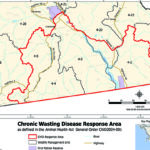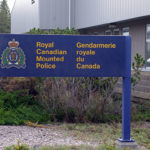Home »

WMA logging must be denied argues Wildsight
Regional environmental and conservation watchdog Wildsight is sounding the alarm on a pitch by Canfor to log in the Columbia Wetlands Wildlife Management Area (WMA).
 “Canfor is proposing to log in the fragile WMA. Pitched as a beetle salvage logging operation, the company’s efforts will do little to stop the spread of Fir Bark Beetle but will do significant harm to the sensitive ecosystem here,” Wildsight stated in a media release.
“Canfor is proposing to log in the fragile WMA. Pitched as a beetle salvage logging operation, the company’s efforts will do little to stop the spread of Fir Bark Beetle but will do significant harm to the sensitive ecosystem here,” Wildsight stated in a media release.
“Wildlife in B.C. are in crisis; if they can’t be prioritized in one of the most important wetland complexes in North America and a provincially designated Wildlife Management Area, where will they be given priority?” questions Robyn Duncan, Wildsight’s Executive Director.
The Columbia Wetlands are the largest intact wetlands in southern B.C. Rich in plant and animal life, the 180-km-long wetland, stretching from Columbia Lake to Donald, is home to more than 300 species of animals, 65 of which are designated species at risk.
“World-renowned for its beauty and biodiversity, the Columbia Wetlands is also a key stopover and breeding ground for migratory birds, and helps connect sensitive species such as grizzly bears moving across larger landscapes,” Wildsight’s media release noted.
WMAs are areas designed by the province to protect fish and wildlife species or their habitats. “Canfor’s proposed logging west of Castledale, 58 km north of Radium Hot Springs, entirely overlaps with the 17,000 ha Columbia Wetlands WMA. While Canfor argues this is salvage logging to address beetle-affected trees — an issue endemic in the area but also increasing with changing climate — this action will not help the problem,” Wildsight said.
As of publication of this article (Friday, April 30), Canfor has not replied to e-KNOW’s request for comment made on April 23.
“Logging in the WMA will not control the beetle infestation. The infestation is already advanced and the beetles will likely be elsewhere by the time any logging occurs,” stated Duncan. “The proposed logging will further fragment mature forest adjacent to the wetlands and result in further losses to habitat and connectivity for species like grizzly bears and migratory birds.”
The proposed salvage logging will also require invasive new roads penetrating an area designed to protect wildlife, and will remove dead trees that provide valuable habitat for the hundreds of species that rely on this intact ecosystem, Wildsight pointed out.
“The timber values pale in comparison to the value that the forested areas within the wetlands provide to maintain the rich biodiversity of this globally recognized area,” said Duncan. “We urgently request that the proposed logging within the WMA not be approved, and for the Columbia Wetlands WMA to be removed from the Timber Harvesting Land Base.”
Lead image: The approximate location of Canfor’s proposed cutblock, directly adjacent to the Columbia Wetlands near Castledale. Photo/graphic by Pat Morrow
Ian Cobb/e-KNOW







